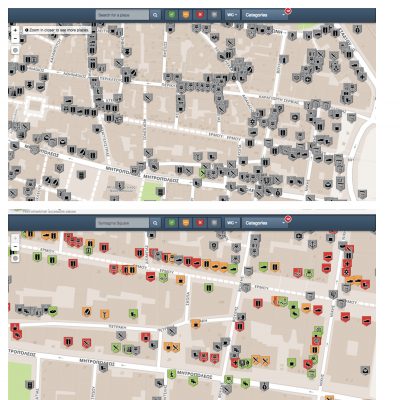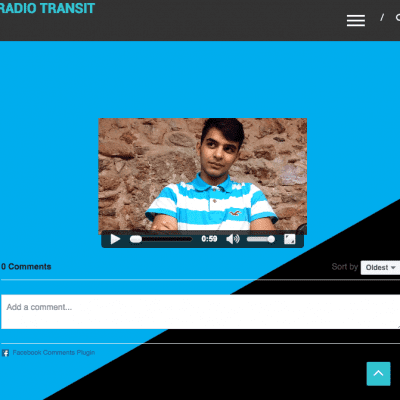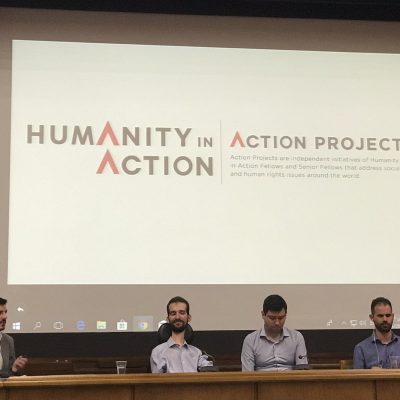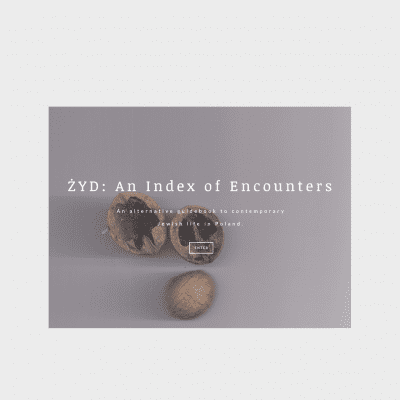Article
As part of the 2016 Humanity in Action Berlin Fellowship, Senior Fellow Zaneta-Eleni Melissourgaki participated in a session on inclusion and accessibility, that included a presentation of Wheelmap.org. This is an online, worldwide map for finding and marking wheelchair accessible places; a mobile application is also available. Wheelmap was developed by Sozialhelden, a non-profit organisation based in Berlin, Germany and it is used by thousands of people worldwide. The simplicity and usefulness of this tool impressed Zaneta-Eleni.

The map includes any point of interest one could think of: from restaurants and bars to public services and banks. What is more, any point of interest added to the map can be rated in terms of accessibility with the use of a simple traffic light system: wheelchair-accessible places are marked as green, those non-accessible to wheelchair users are marked as red, while the yellow colour indicates restricted accessibility. The same day as the presentation Zaneta-Eleni downloaded the application on her phone and, once she was back home in Athens, Greece, she started contributing to the map, by adding or rating places in her neighbourhood.
Zaneta-Eleni exclaimed that,
“To my great disappointment though, and in total contrast to Berlin, the map of Athens was almost entirely grey: this is the colour for places of unknown status, for which information on accessibility is missing.”
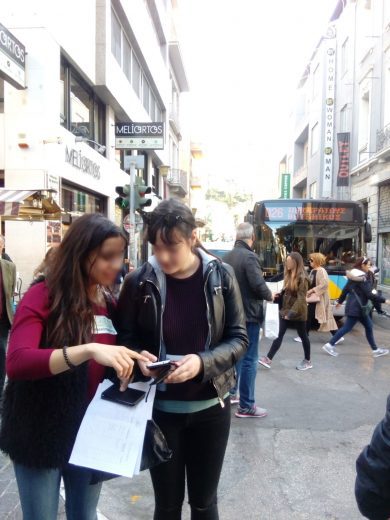 What was previously invisible to Zaneta-Eleni was now painfully omnipresent: she was struggling to find restaurants, services or, as a matter of fact, any other kind of location, that was accessible. Rating her favourite cafes was something, but it most certainly was not making enough of a difference.
What was previously invisible to Zaneta-Eleni was now painfully omnipresent: she was struggling to find restaurants, services or, as a matter of fact, any other kind of location, that was accessible. Rating her favourite cafes was something, but it most certainly was not making enough of a difference.
Parked cars, ill-placed road signs, extremely narrow or non-existent pavements, broken concrete on curbs are just some examples of the obstacles rendering moving around almost impossible for people with any kind of mobility limitations. But even when a person manages to overcome such barriers, the very last meters of the journey can be decisive. A single step at the entrance can make the whole journey futile. Non-accessibility is a major impediment to equal access to social space for thousands of Athenians using a wheelchair or facing some other kind of mobility limitation. By extension then, non-accessibility emerges as a major impediment to social inclusion for these same people.
This project adopts a bottom-up approach. Owners of shops and different points of interest should be encouraged to think of accessibility and those who have done so already need to be acknowledged. At the same time, collecting information on accessibility is valuable, and Wheelmap is an excellent tool in this regard. However, for the time being, information is lacking which means that even though the potential is there, Wheelmap cannot really serve Athenians yet unless content is added. MapMyDay – Athens aimed at filling in this gap.
This Action Project addressed the issue of accessibility in a city that is rather unfriendly towards wheelchair users.
As such, the first goal was to add new places or mark currently existing ones on a larger scale compared to what Zaneta-Eleni was already achieving on her own. Working in groups allows to quickly map areas with many unmarked places.
The city center was chosen to host this mapping event. On April 3rd, 2018, at 5:00 pm, participants gathered at Syntagma square to map some of the most lively streets in Athens and meet again at Monastiraki square for reflection and feedback.
A list of points of interest not currently in the map and of their ratings was also created, for these places to be manually added later.
In just a few hours, 246 places were marked, of which 66 were fully accessible (green), 71 were partially wheelchair accessible (yellow) and 109 were not wheelchair accessible (red).
At the same time, the mapping event was an excellent opportunity to raise more awareness around the issue of accessibility. This included shop owners who were approached to verify the accessibility status of their shop but also passers-by. It is important to note that the area selected is usually very crowded, so they had many opportunities to discuss or give away related material, such as flyers. Last, the event was successful in mobilizing a very committed group of volunteers, the members of Allies for Health, who can now spread the word even further.

